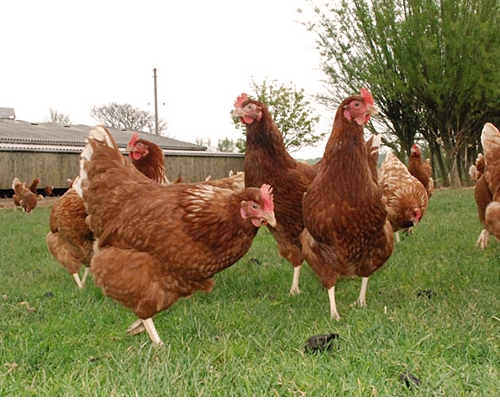The company that owns Burger King and Tim Horton’s – Restaurant Brands International (RBI) – has announced that its restaurants will serve only free-range eggs by 2025. And they’re not the first to do so. But will those changes lead to big increases in Egg prices and less availability?
 Free Range Chickens… Happier Chickens, happier Egg consumers. Major restaurant
Free Range Chickens… Happier Chickens, happier Egg consumers. Major restaurant
chains are making the switch in response to outcries from customers
about battery farm cruelty.
McDonald’s and Denny’s have made similar commitments and Starbucks – which uses far fewer eggs than the aforementioned giants – is targeting 2020 for serving only cage-free eggs. The obvious question is, why is it going to take so long to implement what seems like a simple change?
Size matters…
We explained in a previous post that even small changes in the menu may take months or years to phase in at the major Fast Food outlets. it’s all a matter of size. When you’re McDonald’s or Burger king and you have tens of thousands of outlets spread across the globe, you have to make arrangements for the supply of your new menu items. And that can be difficult if it means that hundreds or thousands of suppliers must make major changes in their operations to fill your orders. The recent move by some Fast Food giants to antibiotic-free Chicken is a good example.
So the ‘promise’ of cage free Eggs a decade out from now shouldn’t seem unusual. But, just the same, some agriculture experts are expressing doubt that the cage-free Egg targets can me bet. It’ll mean a huge change in the way Eggs are produced and a huge investment by Egg producers, to convert their battery-cage farms to free-range operations.
So what does this mean?
If Egg producers have to increase the price of Eggs to cover the costs of converting to free range operations, what will that do to the price of Eggs? Eggs have been about $0.25 apiece for ages and ages while the prices of other food prices have ebbed and flowed with the market. What if they suddenly go up by 50 per cent? A hundred per cent?
They’ll still be relatively cheap, compared to other highly-nutritious protein sources and they’ll remain essential to bakers and devotées of the traditional North American breakfast. But, for the masses, will Eggs become a treat or a special occasion food rather than a daily staple? Will the price of an Egg-based breakfast sandwich at your local fast Food joint skyrocket by, say, a dollar?
Hidden consequences?
You can be sure that the restaurant operators won’t sacrifice profits for popularity. Maybe they’ll just cut the size of the sandwich hoping you won’t notice. That’s a popular tactic used by packaged food manufacturers and restaurant operators alike, to try to deceive you about their cost-cutting moves. What if more-expensive breakfast sandwiches decline in popularity. Will they be replaced with other, cheaper-to-produce and less-nutritious items on restaurant menus?
Well, as we’ve already noted, it’ll take at least a decade for the whole story to unfold. But I’m already mourning the (imminent) death of the good, old, reliable $0.25 Egg…
~ Maggie J.

